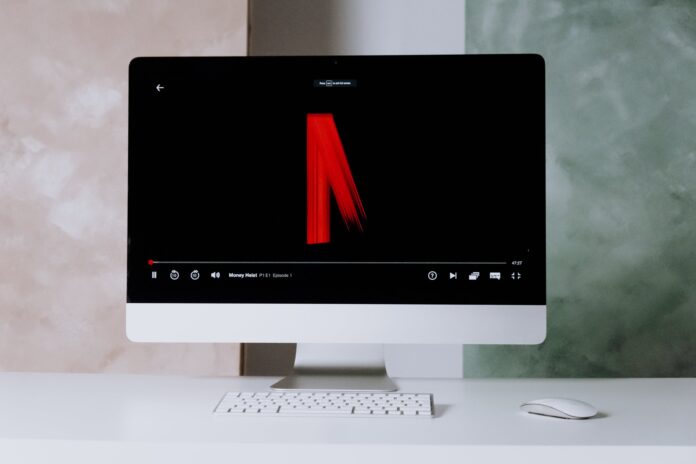
Trends in copyright infringement
In November 2020, the European Union Intellectual Property Office (“EUIPO”) published the third edition of the study “European citizens and Intellectual Property: perception, awareness and behaviour”, which shows how Intellectual Property rights are perceived by EU citizens, piracy attitudes and consumer behaviour. This EU-wide study confirms the general respect for Intellectual Property rights in the European population.
As regards downloads, people are now more willing to pay for legal content particularly if it is made available at a reasonable price. Part of this change may be linked to the increase in availability of legitimate sources (such as Netflix or Disney+). People are paying more for legitimate content as the quality and diversity improves. They are also checking more frequently whether the sites they use are legal or not. In this sense, the EUIPO study highlights a decrease in the proportion of the population using pirated online content.
Nevertheless, according to the EUIPO study, “while Europeans are generally opposed to the use of pirated online content, slightly more than a quarter agree that it is acceptable to obtain pirated online content when there is no immediately available legal alternative or when it is for personal use.” Furthermore, “about 1 out of 10 Europeans surveyed (8 %) admitted to having intentionally accessed online content through illegal sources over the last 12 months.” Indeed, “among the younger age groups, the proportion using pirated online content is higher than average” and “those who intentionally accessed online content from illegal sources, are also likely to have purchased online content.”
On the other hand, on 20 November 2020, the Audiovisual Anti-Piracy Alliance ( “AAPA”) shared its position on how to strengthen the fight against online piracy and the protection of Intellectual Property in the EU. Specifically, the AAPA published the “AAPA policy paper” under the title “Strengthening the fight against online piracy and the protection of intellectual property rights at the European Union level”, which states that during the Covid-19 outbreak, “while millions of people were (and still are, to some extent) locked down at home, looking for different types of digital entertainment to cope with social isolation, criminals have exploited the crisis and adapted their operations to expand their illegal activities.” Accordingly, the report emphasises that “pirate offers have increased in number and quality, taking advantage of the lack of sport events and the reduction in the stream quality being delivered by legitimate providers due to EU broadband overload.”
Protecting copyright online
In this context, clearly, copyright violations on the Internet remain a serious problem in many European countries as some websites are either hosting or facilitating the online communication of protected works without the consent of the right holders.
There are several European procedures safeguarding Copyright on the Internet. In Spain, the lawmaker has set up a swift, specific administrative procedure for safeguarding economic exclusive rights on the Internet against acts of infringement carried out by providers of information society services. To use this procedure, the infringement must be carried out by service providers which represent a certain economic activity in the digital environment (which would exclude merely private activities) without defining a specific threshold. In this sense, a case-by-case analysis is required.
The procedure is regulated by Article 195 of the Spanish Copyright Act and by Royal Decree 1889/2011; cases shall be filed at the Copyright Commission of the Spanish Ministry of Culture (“Copyright Commission”) by an administrative application; and its purpose is to restore legality (for example, by withdrawing protected content or by blocking access to the website where the infringing contents are being offered). According to the report on “Data Analysis of the Copyright Commission of the Spanish Ministry of Culture [Section Two]”, published in March 2020 by the Spanish Ministry of Culture (“Copyright Commission report“), the Copyright Commission has increased its website-blocking activity by 443%, and all the signs are there that the percentage will increase year after year.
This procedure can be used when the infringement takes place via the Internet and copyright holders, their representatives and even copyright management societies (e.g. SGAE, CEDRO, AGEDI or EGEDA) are entitled to initiate the procedure.
As mentioned above, the procedure may be directed against those information society service providers which are liable for copyright infringement, either directly or indirectly, by actively facilitating or enabling such infringement. In this regard, providing ordered and classified lists of links to protected content may involve an infringement.
Nevertheless, this procedure is only intended for cases that may be considered particularly serious. Therefore, the application itself does not automatically open the procedure; the Copyright Commission may decide whether to open based on the level of audience in Spain, the specific business model of the information society service, and the number of protected works which can be accessed over the service. For the cases where the Copyright Commission decides not to pursue an inquiry and a subsequent procedure, the only way to resolve the matter would be enforcing the copyright before the Spanish courts.
Preliminary inquiry stage
The administrative procedure has a preliminary stage which begins once copyright holders, their representatives or copyright management societies submit the application before the Copyright Commission. The application must include certain information and data, such as the protected works; copyright ownership; proof of the unauthorised exploitation; proof of the profit motive; data enabling the identification of the infringer; and reasonable proof of a failed cease and desist letter to the infringer (in cases where there is a valid email address to receive the communication). According to the Copyright Commission report, 654 applications have been submitted (9 of them since 1 January 2020).
The Copyright Commission can request the assistance of services and content providers to verify the information in the application. However, if it is necessary to request data from an intermediary service provider in order to identify liable service providers, prior judicial authorisation is required from the Central Administrative Court, which will evaluate the eventual violation of rights set forth by the Spanish Constitution (Article 122 of the Contentious-Administrative Spanish Act 29/1998).
If the information society service provider has not complied with the legal requirements set forth by Article 10 of the Spanish Act 34/2002 on legal aspects of information society services and electronic commerce, the Copyright Commission can adopt (with previous judicial authorisation) protective measures for safeguarding copyright and blocking access to the website or withdrawing protected content before starting the administrative procedure. The afore-mentioned Article states that service providers must allow an easy, direct, permanent and free of charge access to relevant information such as the name of the service provider; the geographic address at which the service provider is established; and the details of the service provider, including e-mail address, which allow them to be contacted rapidly and communicated with in a direct and effective manner. If the service provider has not made this information available, the Copyright Commission will not have to wait until the Enforcement Stage [see below] to request the assistance of intermediary service providers and to provisionally block access or withdraw content protected under copyright.
A recent example of prior judicial authorisation to provisionally enforce such protective measures is Court Order No. 36/2020, of 11 November 2020, issued by Madrid Central Administrative Court No. 3. In this matter, the service provider did not comply with the above-mentioned information requirements by not offering easy, direct, permanent and free of charge data regarding its identity or location. Specifically, the service provider offered links for downloading numerous protected works within structured webpages actively controlled by it. For this reason, issuing the order to provisionally block its domain name was considered an appropriate and necessary measure, while the alternative measure of withdrawing protected content was unfeasible, given that the service provider had failed to comply with its identification legal obligations and it could not be formally warned.
Initiation stage
Once the application has been submitted to the Copyright Commission, and the latter considers that the procedure can be initiated, the copyright holder and the information society service provider will be notified so that, within a maximum period of 48 hours, the service provider can withdraw protected content or cease illegal activities on a voluntary basis. In this sense, the service provider may oppose the proposed measures and it may offer further evidence to contradict the copyright holder. According to the Copyright Commission report, 109 of the 188 initiated procedures concluded with voluntary withdrawal of protected content; i.e., approximately 60%.
If the service provider withdraws protected content or ceases illegal activities on a voluntary basis, the procedure will conclude. It is important to underline that this will constitute implicit acceptance of the copyright infringement.
On the contrary, if the 48-hour period ends and the protected content is not voluntarily withdrawn (albeit that claims may have been made or evidence provided in this regard), parties will have 2 days to produce evidence and, finally, the Copyright Commission will draw their conclusions. In this context, within a maximum period of 3 days, the Copyright Commission shall issue a decision which will rule on the copyright infringement. If it is considered that there is an infringement, the decision will order the withdrawal of infringing content or the cessation of illegal activities, and the service provider will have a period of 24 hours to comply.
Breaches of the administrative order may result in penalties of up to 600,000 euros. By way of example, in October 2019, a procedure was resolved against a website holder for a copyright infringement. In that case, the penalty was 400,000 euros, and the service provider was ordered to desist from infringing and to publish the decision in the Official Spanish Gazette.
Enforcement stage
If the service provider does not withdraw protected content or does not cease illegal activities on a voluntary basis, the Copyright Commission can request the assistance of intermediary services, electronic payment service and advertising service providers in order to terminate any services provided to the infringer within a period of 72 hours; this request will also be subject to prior judicial authorisation. The aim of this request will be to “follow the money” and to undermine financing sources of the infringer.
However, it should be noted that, when there is reiteration (i.e. two or more times) of the illegal activities after formal requests, the Copyright Commission may request the above-mentioned assistance even without obtaining prior judicial authorisation. More specifically, when the infringing conduct is particularly serious, the Copyright Commission may order to block websites in which copyright is infringed without obtaining prior judicial authorisation. In this way, the administrative procedure will be simpler and quicker.
According to the Copyright Commission report, the total number of websites affected by the administrative procedure was 504, and out of these 504, just 35 did not withdraw protected content or did not cease illegal activities after the enforcement, which means that 93% of the websites stopped offering infringing content.
Advantages of the procedure
The main advantages of the Spanish administrative procedure for safeguarding Copyright on the Internet are its promptness and speed, since the maximum time for notifying the administrative decision is three months. In addition, the procedure is performed electronically, while Spanish administrative processing is usually slow and cumbersome. It is an administrative procedure which allows copyright holders to swiftly request pirate website blockades, without the need for lengthy and costly legal proceedings. In fact, it should be recalled that, at the enforcement stage, the Copyright Commission could order to block websites even without obtaining prior judicial authorisation, which is an innovation in the Spanish legal system. The decision of the Copyright Commission ends the administrative phase. Finally, this decision can be challenged at the Courts.
This being so, as stated in the United States Department of Commerce’s annual Special 301 Report, Spain has strengthened its laws for intellectual property infringement and demonstrated “a continued commitment to tackling online piracy”… so let us get on with it.









